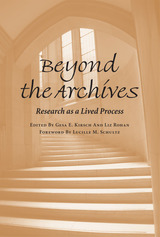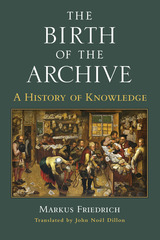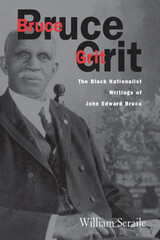5 start with B start with B

Exploring both the dynamism of Bakhtin versus “Bakhtin” and the dynamics of “possible Bakhtins,” the contributors tackle this theorist’s range of shifting shapes, from the carnival-messianistic and the chronotopic, through the philosophic and the ideologic, to the “applied Bakhtin” of the social sciences. Bakhtin’s texts are examined in the context of work by such disparate figures as Ernst Cassirer and Rudolph Rocker, while various aspects of the academic “Bakhtin industry” are examined, including the “will to mythology by anthology” and the inequities of a world market in ideas exemplified by the resource gap between Russian and Western scholarship. The “state of the archive” is assessed by both UK Bakhtin Centre Director David Shepherd and Russian Bakhtin Archivist Nikolai Pan’kov. Throughout the issue, which is framed by Peter Hitchcock’s introductory polemics and Michael Holquist’s afterword, author and archive are continually deconstructed and reconstructed.
Contributors. Robert Barsky, Rachel Falconer, Maroussia Hadjukowski-Ahmed, Ken Hirschkop, Peter Hitchcock, Michael Holquist, Vitaly Makhlin, Nikolai Pan’kov, Brian Poole, David Shepherd, Galin Tihanov, Anthony Wall

This collection of highly readable essays reveals that research is not restricted to library archives. When researchers pursue information and perspectives from sources beyond the archives—from existing people and places— they are often rewarded with unexpected discoveries that enrich their research and their lives.
Beyond the Archives: Research as a Lived Process presents narratives that demystify and illuminate the research process by showing how personal experiences, family history, and scholarly research intersect. Editors Gesa E. Kirsch and Liz Rohan emphasize how important it is for researchers to tap into their passions, pursuing research subjects that attract their attention with creativity and intuition without limiting themselves to traditional archival sources and research methods.
Eighteen contributors from a number of disciplines detail inspiring research opportunities that led to recently published works, while offering insights on such topics as starting and finishing research projects, using a wide range of types of sources and methods, and taking advantage of unexpected leads, chance encounters and simple clues. In addition, the narratives trace the importance of place in archival research, the parallels between the lives of research subjects and researchers, and explore archives as sites that resurrect personal, cultural, and historical memory.
Beyond the Archives sheds light on the creative, joyful, and serendipitous nature of research, addressing what attracts researchers to their subjects, as well as what inspires them to produce the most thorough, complete, and engaged scholarly work. This timely and essential volume supplements traditional-method textbooks and effectively models concrete practices of retrieving and synthesizing information by professional researchers.

Friedrich provides an essential background to the history of archives over the centuries and enriches the story of their evolution with chapters on key sociocultural aspects of European archival culture. He discusses their meaning and symbolism in European thought, early modern conceptions of the archive’s function, and questions of access and usability. Exploring the close, often vexed relationship between archives and political power, Friedrich illustrates the vulnerability of archives to political upheaval and war. He concludes with an introspective look at how historians used their knowledge of and work with archives to create distinct representations of themselves and their craft.
The Birth of the Archive engages with scholarship in political history, the history of mentalities, conceptions of space, historiography, and the history of everyday life in early modern Europe. It has much to offer for specialists and scholars, while the jargon-free prose of this translation is also accessible to the general reader.

Bruce wrote for more than a hundred different newspapers and founded several of them, including the Argus, the Sunday Item, and Washington Grit in Washington, D.C., and the Weekly Standard in Yonkers, New York. A cultural nationalist and Pan-Africanist, Bruce was known as a race-first proponent. In his quest to see that African Americans were granted full political and civil rights, he championed the contributions of African civilization to western culture as a whole, amassing an impressive collection of books, articles, and other scholarly documentation. For most of his career, he believed that African Americans would eventually be able to claim an equal share of the American Dream. However, by the end of his life, he became disillusioned and concluded that the best hope for their future lay in emigration back to Africa.
Seraile traces Bruce’s shifting strategies and tactics and his alliances with famous contemporaries such as Arthur A. Schomburg, Carter G. Woodson, Booker T. Washington, and Marcus Garvey. He argues that underlying all of Bruce’s work was what would become his greatest legacy: his promotion of history and culture of African people in the diaspora as valuable fields of study.
The Author: William Seraile is professor of black studies at Lehman College. He is the author of Voice of Dissent: Theophilus Gould Steward and Black America, Fire in His Heart: Bishop Benjamin Tucker Tanner and the A.M.E. Church, and New York’s Black Regiments During the Civil War.

A Wolfson History Prize Finalist
A New Statesman Book of the Year
A Sunday Times Book of the Year
“Timely and authoritative…I enjoyed it immensely.”
—Philip Pullman
“If you care about books, and if you believe we must all stand up to the destruction of knowledge and cultural heritage, this is a brilliant read—both powerful and prescient.”
—Elif Shafak
Libraries have been attacked since ancient times but they have been especially threatened in the modern era, through war as well as willful neglect. Burning the Books describes the deliberate destruction of the knowledge safeguarded in libraries from Alexandria to Sarajevo, from smashed Assyrian tablets to the torching of the Library of Congress. The director of the world-famous Bodleian Libraries, Richard Ovenden, captures the political, religious, and cultural motivations behind these acts. He also shines a light on the librarians and archivists preserving history and memory, often risking their lives in the process.
More than simply repositories for knowledge, libraries support the rule of law and inspire and inform citizens. Ovenden reminds us of their social and political importance, challenging us to protect and support these essential institutions.
“Wonderful…full of good stories and burning with passion.”
—Sunday Times
“The sound of a warning vibrates through this book.”
—The Guardian
“Essential reading for anyone concerned with libraries and what Ovenden outlines as their role in ‘the support of democracy, the rule of law and open society.’”
—Wall Street Journal
“Ovenden emphasizes that attacks on books, archives, and recorded information are the usual practice of authoritarian regimes.”
—Michael Dirda, Washington Post
READERS
Browse our collection.
PUBLISHERS
See BiblioVault's publisher services.
STUDENT SERVICES
Files for college accessibility offices.
UChicago Accessibility Resources
home | accessibility | search | about | contact us
BiblioVault ® 2001 - 2024
The University of Chicago Press









